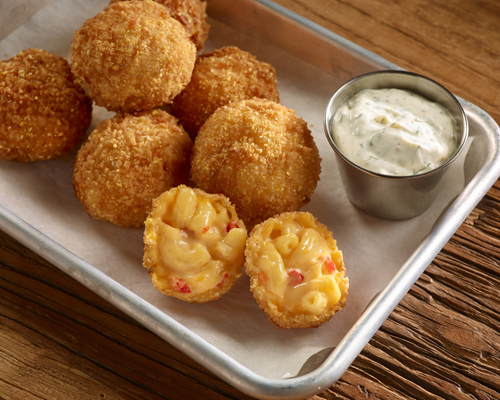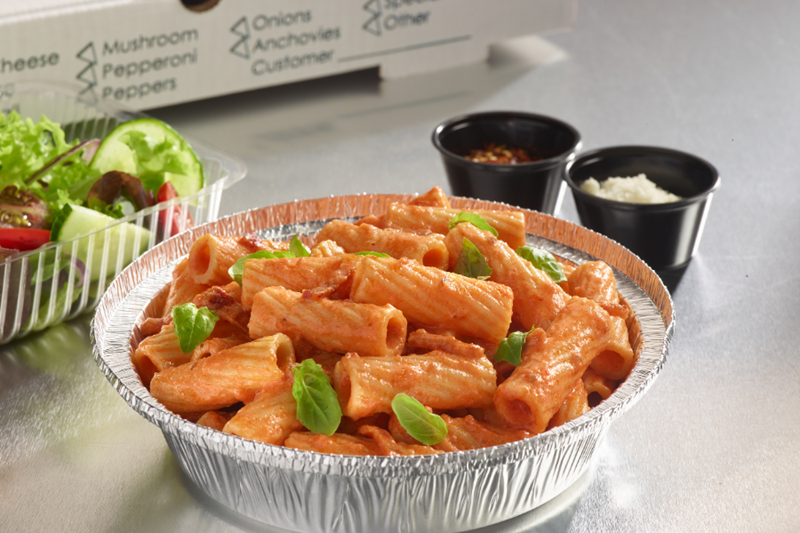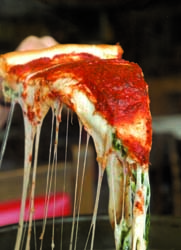 One of my first assignments as a consultant was to implement a turnaround for a group of pizzerias. They were hanging on by a thread. They had cashed in all of their CDs, 401(k)s and charged their credit cards to the max. I had made several visits to the operations. They were buying their food at good pricing and had perfect portion control in place. After putting their financials under a microscope, it became clear to me that theft was probably happening. Since the management and crew knew me by sight, I decided to insert my manager, G.I. Joe, undercover for a week. He was to be hired in as a driver / rookie pizza maker and determine who was stealing and how much was being skimmed. He checked in every night and gave me a briefing. It turned out that there was a GM who was dipping heavily and several drivers who were in collusion. They were stealing over a grand a week. We nailed them red-handed and the turnaround began. A year later, my client went from losing $40,000 a year to making $75,000. The $2,000-a-week difference saved the operation.
One of my first assignments as a consultant was to implement a turnaround for a group of pizzerias. They were hanging on by a thread. They had cashed in all of their CDs, 401(k)s and charged their credit cards to the max. I had made several visits to the operations. They were buying their food at good pricing and had perfect portion control in place. After putting their financials under a microscope, it became clear to me that theft was probably happening. Since the management and crew knew me by sight, I decided to insert my manager, G.I. Joe, undercover for a week. He was to be hired in as a driver / rookie pizza maker and determine who was stealing and how much was being skimmed. He checked in every night and gave me a briefing. It turned out that there was a GM who was dipping heavily and several drivers who were in collusion. They were stealing over a grand a week. We nailed them red-handed and the turnaround began. A year later, my client went from losing $40,000 a year to making $75,000. The $2,000-a-week difference saved the operation.
I have been talking to dozens of operators recently, and many of them have stumbled on to some very serious theft taking place right under their noses. It seems when the economy starts heading down, the cash shortages head up. Is it coincidence or desperation?
Last week I was talking to a client and he told me how he caught a veteran employee stealing from the cash drawer. This employee ran the register during lunch and had memorized the total pricing for the lunch specials. When a crowd gathered at the register, he left the drawer open and collected the right amount from every customer — but didn’t ring every transaction into the POS system. Every 4 or 5 customers he’d close the drawer and play it straight for a while — then he’d do it again.
To accomplish this mental feat of counting how much money the “till drawer” owes you, the average scammer uses “counters”. When pennies or dimes are in the wrong change slot, or paperclips or anything out of the ordinary is in the drawer, counting could be going on.
This scam is only one of the dozen or so that I have discovered at my shop. Some of the most prevalent scams are:
Drivers using coupons they cut out and claimed the customer redeemed at the door. Taking perfectly good food and beverage out to the dumpster under wraps and retrieving it after closing.
Assigning deliveries to other drivers.
Stealing money from the petty cash box.
Stealing cash from the night deposit and feigning an error in addition when the bank calls the next day.
Giving freebies to friends and family.
Theft of company property other than food and cash.
If you suspect that you have a silent partner, develop a few safeguards and traps to catch them. Unannounced cash drawer swaps are very enlightening. Here is my quick-fi x list for slowing the loss:
Drivers will not take coupons at the door that weren’t calculated when the customer called in the order. The exception is a customer can call the store back when the driver is at the door and get the transaction changed on the original order.
All garbage going to the dumpster will be bagged in clear plastic bags. Every bag will have a cup of bleach poured into it before it is tied off. These bags will accumulate at the back door in a plastic wading pool. Every hour or so the manager will walk the trash out to the dumpster.
Fingerprint recognition is a sure-fire way to eliminate accidental or intentional delivery switching at the POS system.
The manager on duty owns the petty cash box. The individual cashiers own their cash register drawers. Overs and shorts will slow down or stop. (While were on it, cash overages scare me more than shortages. This is a positive indicator of theft.)
Two employees count the night deposit and sign the deposit slip. Shortages will stop.
Cashiers can’t ring up family.
Mark all company property with your name. Never let the bookkeeper / accountant touch the money. This list is a starter list so you can do an internal audit on your operation. Things that are measured quite often improve. ?
Big Dave Ostrander owned a highly successful independent pizzeria before becoming a consultant, speaker and internationally sought-after trainer. He is a monthly contributor to Pizza Today and leads seminars on operational topics for the family of Pizza Expo tradeshows.



